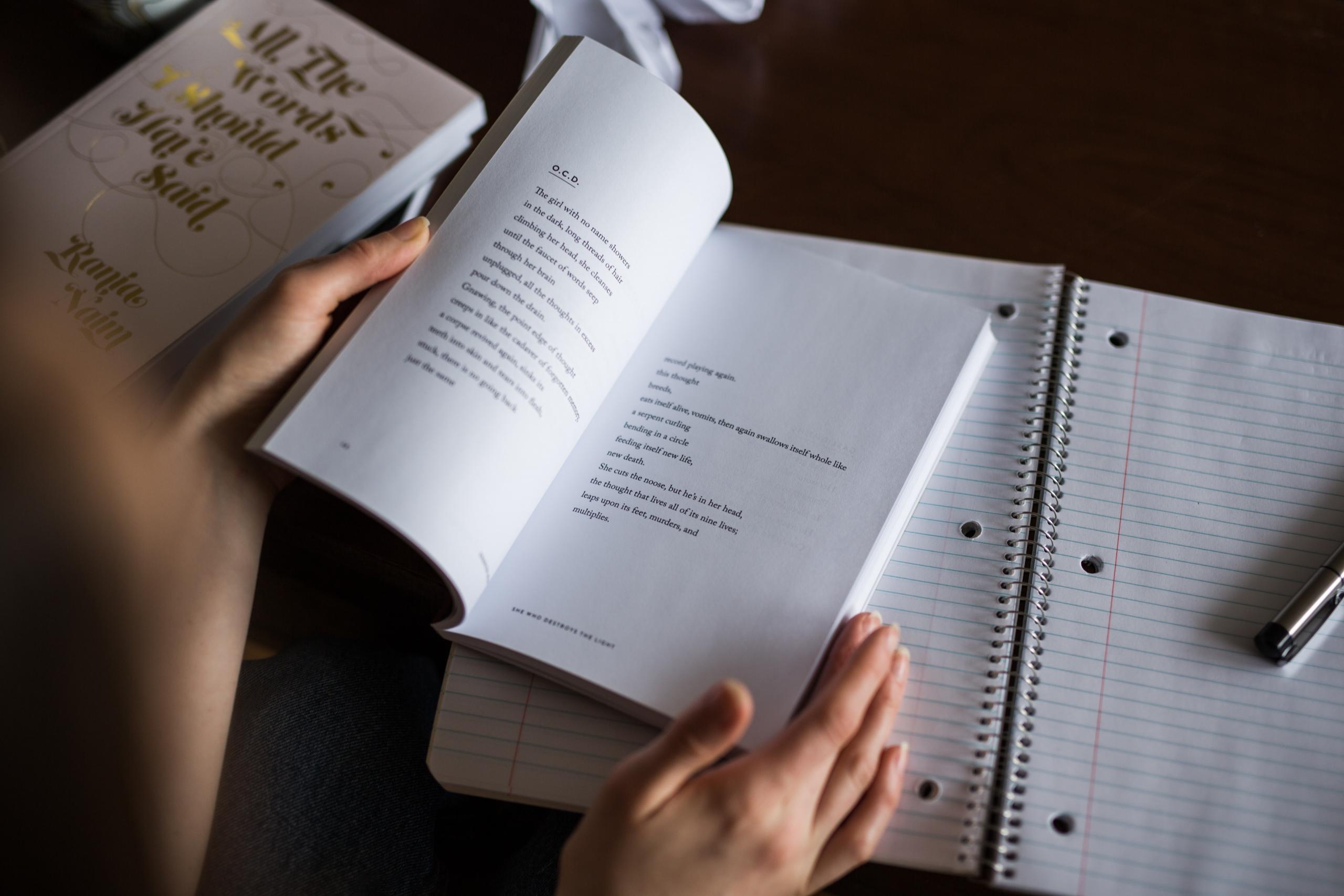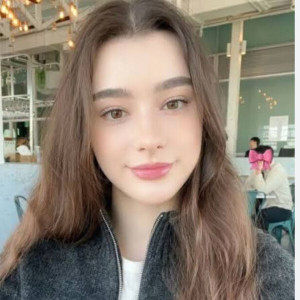Poetry is a literary form that is used by any writer or author to express their deepest feelings or thoughts. Poets can write about everything and anything and make it sound beautiful because of their mastery of the English language.

Writing poetry is not like writing a fiction book but sometimes it can be a narration or a story. The way it differs from other literary forms (like fiction) is how poems defy the rules of the English language and somehow manage to sound beautiful and captivating.
This literary form is taught in English classes in school and university because it is so relevant and not only for the writer's community. In this article, you'll learn about the types of poems, some tips to learn poetry, how to find the perfect tutor in Atlanta, Georgia, and why private tutoring is so useful.
Learning poetry in the United States.

The Different Types of Poems
The first thing you should learn about poetry is that there are many different types and as a poet, you can choose to specialize in one type of poem or you can choose to learn and master a few types.
There is not one single way you can write a poem because they break rules and express things, and you can do it in many different ways.

Continue reading to find out what each type of poem could be about.
- Rhymed - as the name explains, the structure of this type of work involves a lot of rhymes, and writers have to be creative with words to master this type.
- Free verse - writing in free verse usually is about forgetting the common structure of a rhyme scheme, pattern, or even musical form and writers need to come up with a different structure.
- Blank verse - to understand, first you need to know what meter is. Meter is the basic rhythmic structure of a verse or lines in the verse and a blank verse is written with a perfect meter but it does not rhyme.
- Haiku - probably one of the most popular forms taught in school, university, and English classes because of its dynamic. It is a three-line poetic form that originated in Japan. The first line has five syllables, the second line has seven syllables, and the third line again has five syllables.
- Sonnet - this poem is composed of 14 lines and it usually deals with topics like love and being in love with men or women. Sonnets contain internal rhymes within their 14 lines; the exact rhyme scheme depends on the style of a sonnet. There are two different types, the Petrarchan sonnets, and Shakespearean sonnets and writers tend to pick one to dominate.
- Limerick - it is a five-line poem that deals with short topics and have an AABBA rhyme scheme.
- Soliloquy - is a type of monologue where the character is speaking to themselves, expressing inner thoughts that an audience might not otherwise know.
- Lyric poetry - this form deals with topics regarding the writer's feelings and emotions.
- Epics - this form has a long and narrative structure and usually deals with specific themes regarding adventures and feats.
- Narrative poetry - is somewhat similar to an epic because it tells a story.
- Pastoral poetry - they deal with topics regarding the natural world, landscapes, and rural life. They existed in Ancient Greece and Ancient Rome.
- Villanelle - it has nineteen lines with five tercets and a quatrain, with a highly specified internal rhyme scheme. Originally a variation on a pastoral, the villanelle has evolved to describe obsessions and other intense subject matters.
- Ballad - known also as the ballade, is a form of narrative verse that can be either poetic or musical. It typically follows a pattern of rhymed quatrains.
- Elegies - is a poem that usually reflects on themes like loss, death, reflection, mourning, redemption, and consolation.
- Ode - similar to the elegy but the object of inspiration need not be dead. For instance, it could be a poem about a black urn.
Poetry lessons in New York City.
Tips to learn poetry

Learning to write poetry is no easy task. It will take years of hard work and dedication, plus a lot of mistakes and mishaps before you manage to become a published author, a poet, and a writer.
If you are in a school, university, workshop, program, or you are part of a group or community of aspiring poets, here are some tips you could follow to become a better writer and work on your skills as a poet:
- Read - reading is a key aspect of writing. You need to read hundreds of books before you can write one yourself and this rule applies to poetry too. You must read a lot to be able to come up with a good one.
- Practice - like everything in life, you need to practice if you want to master any skill. If you want to become an award and prize-winning author and poet you will have to spend hours, days, and over a year practicing.
- Network - joining a community or group of aspiring poets can help you reach your dreams. These communities often offer workshops, resources, free events, library access, virtual documents, out-of-state trips, and more. You can look for a national program and befriend members in the Atlanta area (or in the state). You can benefit from all of this and meet other members who are in the same boat as you.
- Review your writing - it is easy to be lazy and forget to check your writing, however, if you review your work and have it peer-reviewed you can spot mistakes and improve your skills.
- Start small - we would like to remind you to start small because people tend to want to reach their goals with no time or effort. This is why so many people quit after only a year or less of dedicating time to a new hobby. You should be patient and understanding with yourself.
Poetry classes in Houston.
Finding a good poetry tutor in Atlanta, Georgia
Finding a tutor can be challenging, especially in a big city or state, where there are so many options and online resources.
If you live in Atlanta, Georgia, and are looking for a tutor to teach you how to write poems properly, you should pay attention to the following tips.
First, when you decide you want to study and learn with the help of a private tutor, there are some things you should define.
For instance, you need a budget. How much are you willing to spend on a course or workshop?
You'll need to choose a methodology. Do you like having lessons online with virtual resources or do you like to have a physical book and face-to-face encounters with your tutor?
If you like face-to-face you'll have to hire a tutor that lives in your area. On the other hand, if you like online sessions, you can hire someone that is outside of Atlanta, and even outside of the state of Georgia.

Sometimes people believe that all tutors can work with all students, but this isn't always the case. Some tutors have more experience teaching students at a certain level or age. Other tutors have experience working with students above their school level or below. It all depends on the trajectory they've had as teachers and the students they've worked with.
So, before you go searching for someone, you should define your goals, expectations, level of knowledge, strengths, weaknesses, and more. This way you'll be able to narrow down your search and find a tutor faster.
Learn poetry in Los Angeles.
Benefits of learning with a private tutor
Education has transformed and students who want to graduate with good grades and enter a good university work hard to guarantee they reach their goal.
Many kids choose to work with a tutor because they know a tutor will have their back through all the academic challenges they face and eventually help them graduate. Others decide to hire a tutor because they need help and guidance in their student life.
It is the job of a tutor to provide their student with the necessary tools and resources that they can use in class, while taking an exam, doing homework, working on a project, or writing an essay.
The main objective is to provide the student with a support system to help them succeed in their academic life and get a better education.
Learning to write poetry in Chicago.
Summarize with AI:















